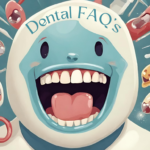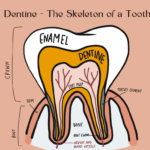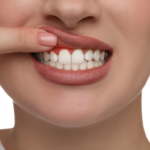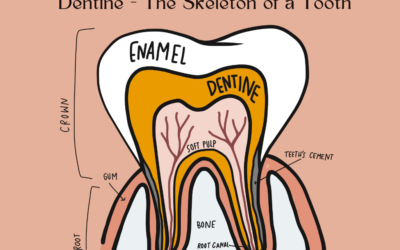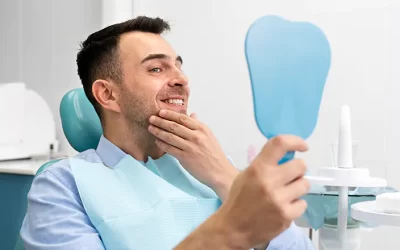Pregnancy is a beautiful journey that brings about numerous changes in a woman’s body. It is an exciting time when the mother-to-be is eager to welcome her bundle of joy into the world. However, with pregnancy comes great responsibility, including the need for regular prenatal oral check-ups, pregnancy oral care, and postpartum oral care.
Importance of Prenatal Oral Check-Ups
As the dictum goes,
“MOUTH IS THE MIRROR OF OUR BODY“
Prenatal oral check-ups are crucial during pregnancy as hormonal changes can increase the risk of gum disease and tooth decay. The American Dental Association recommends that pregnant women visit their dentist for routine dental check-ups at least once during pregnancy. These check-ups can help detect oral health problems early on and ensure they do not worsen during pregnancy.
Hormones: The chemical messengers
Oestrogen & Progesterone
Oestrogen, the primary female sex hormone, is responsible for developing the female reproductive system and secondary sexual characteristics.
Progesterone, commonly called the Pregnancy hormone, helps to regulate the menstrual cycle and support pregnancy. If there is fertilisation and implantation, progesterone levels increase to maintain the pregnancy by preparing the uterine lining.
This sudden surge in progesterone levels during pregnancy causes havoc to the teeth and gums.
- Pyogenic Granuloma – Small reddish swelling or nodule developing around the gum margins. In normal, the swelling reduces on its own, but at times it requires surgical removal in some pregnant ladies.
- Plaque & Tartar – accumulate more because of poor oral care in the first trimester of pregnancy.
- Dental erosions – In the first trimester of pregnancy, MORNING SICKNESS is a widespread occurrence. Sudden exposure of teeth to insurge of gastric acids /juices causes Dental enamel erosions. Pregnant ladies experiencing HYPEREMESIS GRAVIDUM tend to have severe enamel erosions due to severe nausea and vomiting. This occurs in 0.5-2% of pregnant ladies requiring hospitalisation due to dehydration and weight loss.
- Dental Caries – Increased sugary cravings and snacking during pregnancy cause dental cavities and pre-existing cavities to flare up. This causes severe tooth pain or abscess requiring root canal treatment or tooth extraction. Pregnant ladies with untreated dental cavities can have premature labour and even pass on the dental infection to the newborn.
- Above are a few commonly seen dental issues or conditions during pregnancy. Depending on which trimester of pregnancy, treatment and management of the same varies.
It is important to note that dental procedures such as dental fillings, tooth extractions and root canal treatments are safe during pregnancy, especially during the second trimester. Delaying these procedures can lead to further complications and require more extensive dental treatment.
Pregnancy Oral Care
In order to have a smooth, safe pregnancy and delivery, it is highly recommended to visit the dentist for routine dental care.
Oral Health Check-up regime
- Pre-Pregnancy phase:(planning phase). Dental check-ups are to start six months to one year prior.
- Prenatal phase: Pregnancy Phase dental check-ups
- Postpartum Phase: After one month of delivery, Dental check-ups resume.
Oral care tips to follow
Here are some tips for maintaining good oral health during pregnancy:
- Brushing Twice a Day: Brushing your teeth twice daily with fluoride toothpaste can help prevent tooth decay and gum disease. Make it mandatory to brush for at least two minutes and use a soft-bristled toothbrush.
- Flossing Daily: Flossing once a day can help remove plaque and prevent gum disease. Use a gentle back-and-forth motion to clean between teeth and avoid forcing the floss as it can cause bleeding gums.
- Eating a Balanced Diet: Balanced diet can help ensure you get the nutrients necessary for a healthy pregnancy and oral health. Avoiding sugar- and acid-based foods and drinks can upsurge the risk of tooth decay and erosion.
- Drinking Plenty of Water: Drinking plenty of water can help to rinse away food particles and bacteria that cause dental caries and gum disease. It can also help relieve morning sickness and dehydration, common during pregnancy.
Postpartum Oral Care (After Delivery)
Postpartum oral care is often overlooked but is as vital as prenatal and pregnancy oral care. Hormonal changes after pregnancy can increase the risk of gum disease and tooth decay. Here are some tips for maintaining good oral health after pregnancy:
- Continue Oral Hygiene Habits: Continue brushing twice daily, flossing once daily, and eating a balanced diet to maintain good oral health.
- Schedule a Dental Check-Up: Schedule a dental check-up with your dentist after giving birth to ensure that any oral health problems are detected and treated early on.
- Breastfeeding and Oral Health: Breastfeeding can cause dry mouth, increasing the risk of tooth decay. Drinking plenty of water and maintaining good oral hygiene while breastfeeding is important.
- Postpartum Depression and Oral Health: Postpartum depression can affect oral health, as individuals with depression may neglect their oral hygiene. It is essential to seek treatment for postpartum depression and maintain good oral health habits.
In conclusion, prenatal oral check-ups, pregnancy oral care, and postpartum oral care are essential for maintaining good oral health during and after pregnancy.
Regular dental check-ups and oral hygiene habits can prevent oral health problems and ensure that any problems are detected and treated early on.
“An ounce of prevention is worth a pound of cure.” – Benjamin Franklin
Consequently, it is critical to prioritise oral health throughout pregnancy and after birth to ensure a healthy and happy journey into motherhood.
